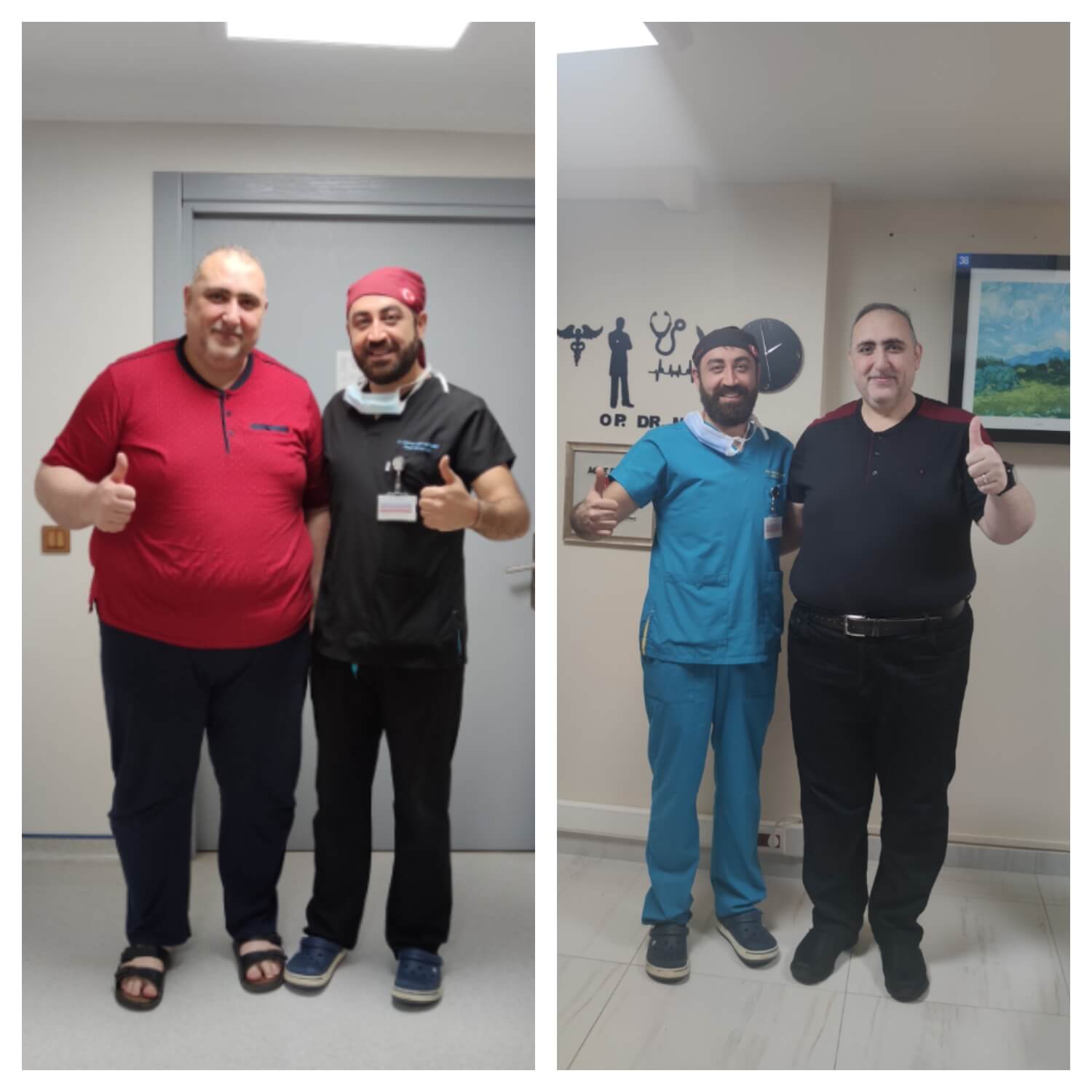
Beat Obesity and Diabetes
Obesity is a severe condition that affects millions of people worldwide. This condition increases the risk of other health problems such as type 2 diabetes, high blood pressure, heart disease, and many other chronic diseases. It’s important to note that obesity is a complex problem that can’t be easily solved by diet and exercise alone. In some cases, weight loss surgery may be the best option for achieving long-term weight loss. Gastric sleeve surgery, also known as sleeve gastrectomy, is one of the most effective and widely used weight loss surgeries. In this article, we’ll explore what gastric sleeve surgery is, how it works, and its benefits.
What is Gastric Sleeve Surgery?
Gastric sleeve surgery involves the removal of a large portion of the stomach to reduce its size. This reduction in size causes a feeling of fullness with smaller meals, leading to reduced calorie intake and weight loss. The procedure is usually performed laparoscopically, using small incisions and a camera to guide the surgeon’s movements. The surgery takes around 1-2 hours to complete and is usually performed under general anesthesia.
How Does Gastric Sleeve Surgery Work?
The gastric sleeve surgery works by reducing the size of the stomach, which leads to the patient feeling fuller and consuming fewer calories. During the surgery, the surgeon removes approximately 80% of the stomach, leaving behind a thin, banana-shaped sleeve. The stomach sleeve is stapled closed, and the remaining stomach is removed from the body. This leads to a significant reduction in the amount of food that the stomach can hold, which ultimately leads to weight loss.
Benefits of Gastric Sleeve Surgery
Gastric sleeve surgery is a highly effective weight loss solution that offers numerous benefits for obese patients. Some of these benefits include:
Long-term weight loss
Patients who undergo gastric sleeve surgery typically lose between 50-70% of their excess weight within the first year after surgery. This weight loss is maintained long-term, leading to significant improvements in overall health.
Improved Health
Gastric sleeve surgery not only helps in weight loss but also reduces the risk of other health problems such as type 2 diabetes, high blood pressure, heart disease, and sleep apnea.
Improved quality of life
Patients who undergo gastric sleeve surgery often report an improved quality of life with less joint pain, more energy, and improved mobility.
Faster recovery
Since the procedure is performed laparoscopically, patients experience less pain and have a shorter recovery time than with other weight loss surgeries.
Beat Obesity and Diabetes with Surgeon Mehmet Korkmaz
If you are considering gastric sleeve surgery, you want to make sure that you choose an experienced and skilled surgeon. Surgeon Mehmet Korkmaz is a highly respected bariatric surgeon with over 10 years of experience performing gastric sleeve surgery. Dr. Korkmaz specializes in minimally invasive weight loss surgery and is dedicated to providing his patients with the highest quality of care. Contact Dr. Korkmaz today to schedule a consultation and learn more about how gastric sleeve surgery can help you beat obesity and diabetes.
FAQs
How long does gastric sleeve surgery take?
The procedure takes around 1-2 hours to complete.
How long does it take to get well after gastric sleeve surgery?
Most patients are able to return to normal activities within two weeks after surgery.
What kind of diet do I need to follow after surgery?
Your surgeon will provide you with a detailed diet plan that you should follow to ensure a smooth recovery and long-term weight loss success.
Is gastric sleeve surgery covered by insurance?
Many insurance plans cover gastric sleeve surgery, but coverage may vary depending on your individual policy.
What are the risks associated with gastric sleeve surgery?
There are dangers associated with gastric sleeve surgery, but they are similar to those of any other type of surgery. Among them include anesthesia-related problems, infections, blood clots, and bleeding. However, life-threatening side effects are uncommon, and most patients make a full recovery.
Can I drink alcohol after gastric sleeve surgery?
It is recommended that patients avoid alcohol for at least six months after surgery to allow their body to fully heal. After that time, patients can drink alcohol in moderation, but it is important to note that alcohol can slow down weight loss progress and may be more potent after surgery.
Will I need to take supplements after gastric sleeve surgery?
After gastric sleeve surgery, patients will need to take vitamin and mineral supplements to ensure that they are getting all of the necessary nutrients. Your surgeon will provide you with specific recommendations based on your individual needs.
How much weight should I expect to lose following gastric sleeve surgery?
The amount of weight that patients lose after gastric sleeve surgery varies depending on several factors, including their starting weight and their adherence to a healthy diet and exercise plan. On average, patients can expect to lose between 50-70% of their excess weight within the first year after surgery.
Can gastric sleeve surgery be reversed?
Gastric sleeve surgery is not reversible, as the removed portion of the stomach is permanently removed from the body. However, the procedure is highly effective and has a low risk of complications.
If you are struggling with obesity and diabetes, gastric sleeve surgery may be an effective solution for achieving long-term weight loss and improved health. With the guidance of an experienced surgeon like Dr. Mehmet Korkmaz, you can achieve a healthier and happier lifestyle. Contact Dr. Korkmaz today to schedule a consultation and learn more about how gastric sleeve surgery can help you beat obesity and diabetes.
Who to Beat Obesity and Diabetes?
Beat Obesity and Diabetes with Surgeon Mehmet Korkmaz and the support of a skilled medical team. Dr. Korkmaz is a highly experienced bariatric surgeon who specializes in minimally invasive weight loss surgery, including gastric sleeve surgery. With his expertise and guidance, you can achieve significant weight loss and improved health, reducing your risk of diabetes, heart disease, and other chronic conditions. Contact Dr. Korkmaz today to learn more about how we can help you beat obesity and diabetes.
Comparison of Gastric Sleeve Surgery with Other Techniques
Gastric sleeve surgery, also known as sleeve gastrectomy, is just one of several weight loss surgery options available for people struggling with obesity. Here’s a comparison of gastric sleeve surgery with two other popular weight loss procedures:
Gastric Sleeve Surgery vs. Gastric Bypass Surgery
Gastric bypass surgery involves creating a small pouch at the top of the stomach that is connected to the small intestine, bypassing the rest of the stomach and part of the small intestine. This rerouting of the digestive tract reduces the amount of food that the body can absorb, leading to weight loss. The main differences between gastric sleeve surgery and gastric bypass surgery are:
- Gastric bypass surgery is more invasive and involves rerouting the digestive tract, whereas gastric sleeve surgery simply reduces the size of the stomach.
- Gastric bypass surgery has a higher risk of complications, such as malabsorption and nutritional deficiencies, than gastric sleeve surgery.
- Gastric bypass surgery may be more effective for people with more severe obesity or those who have failed to achieve weight loss with other methods, whereas gastric sleeve surgery is generally suitable for people with a lower BMI or those who are looking for a less invasive option.
Gastric Sleeve Surgery vs. Lap-Band Surgery
Lap-Band surgery, also known as adjustable gastric band surgery, involves placing a band around the top of the stomach to create a small pouch. The band can be adjusted over time to control the amount of food that the stomach can hold. The main differences between gastric sleeve surgery and Lap-Band surgery are:
- Lap-Band surgery is a reversible and adjustable procedure, whereas gastric sleeve surgery is permanent and cannot be reversed.
- Lap-Band surgery has a lower risk of complications than gastric sleeve surgery, but it is also generally less effective in achieving significant weight loss.
- Lap-Band surgery requires frequent adjustments and may need to be removed if it causes complications or is not effective, whereas gastric sleeve surgery does not require any adjustments and has a lower risk of long-term complications.
Ultimately, the choice of weight loss procedure will depend on several factors, including the patient’s individual health needs, BMI, and preferences, as well as the surgeon’s recommendation. It’s important to work with a skilled and experienced bariatric surgeon to determine the best course of action for achieving long-term weight loss and improved health.








 Türkçe
Türkçe English
English Français
Français Español
Español Italiano
Italiano Deutsch
Deutsch Pусский
Pусский



















